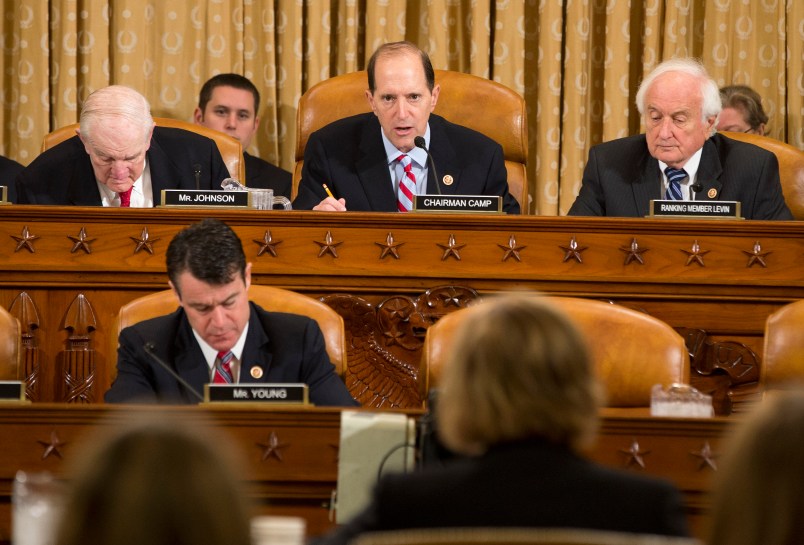In the spring of 2013, two federal investigators spoke to a Republican House staffer about a recent leak of a Medicare policy change that had set off a flurry of stock trades in major health care companies.
The investigators, one from the FBI and the other from the Health and Human Services Department, wanted to know about a conversation the staffer, Brian Sutter, allegedly had with a lobbyist on April 1, 2013, the day the information leaked.
According to court documents filed last week in Manhattan federal court, Sutter initially told investigators he could not remember having spoken to the lobbyist about the Medicare policy change. The lobbyist had said during the investigation that he and Sutter discussed the information, the documents said.
But several days later, the court documents said, an attorney for the House wrote a letter to the FBI and HHS on Sutter’s behalf saying the staffer thought more about his answers and his “best recollection now” is that he “may have” spoken with the lobbyist.
“With the benefit of some time for reflection, Mr. Sutter’s best recollection now is that he previously may have used his mobile telephone to speak with [the GT lobbyist], although he is not certain,” the attorney wrote, according to the court documents. “It is also possible that Mr. Sutter may have made some other statements in the course of his interrogation that, while an accurate reflection of his memory at the time, might merit clarification if, for example, Mr. Sutter were to review records that could refresh his memory.”
That letter and the sequence of events that preceded it became public last week in a lawsuit filed by the Securities and Exchange Commission, which is attempting to force Sutter and the House Ways and Means Committee he works for to turn over evidence in a civil investigation of the leak.
The SEC has said Sutter and the committee have so far refused to comply with its subpoenas. The lawsuit goes as far as to say that Sutter “may have been” the source of the leak, but stops short of outright accusing him of being so.
The Wall Street Journal has identified the lobbyist Sutter allegedly spoke to as Mark Hayes, a former aide to Sen. Chuck Grassley (R-IA). The SEC has alleged the lobbyist shared the information with a financial research firm, which sent out an alert to brokers that sparked the trading.
Last week, the Wall Street Journal reported that Sutter had been given a subpoena to testify before a federal grand jury in a separate but coordinated criminal investigation of the matter. But as TPM reported Thursday, the grand jury subpoena has recently been withdrawn after Sutter’s lawyers agreed to turn over information to the Justice Department.
Authorities have reportedly been investigating whether anyone broke insider trading laws, particularly a 2012 law designed to prevent members of Congress or their staffs from leaking potentially market-moving information.
Before his time in the glare of multiple investigations, Sutter had been steadily climbing the ladder under House Ways and Means Chairman Dave Camp (R-MI). Just three weeks after the alleged phone call with the lobbyist, on April 22, 2013, Camp promoted Sutter to staff director of the health care subcommittee.
In announcing the promotion, Camp said that Sutter had worked with him since 2002. He had introduced himself to Camp at an airport while he was still a student at Hope College, Camp said, and was hired as an intern and later as a staffer after graduating. Sutter was also an intern for the White House under President George W. Bush, according to Camp.
“I am confident Brian’s knowledge of health policy will help improve our nation’s health care system to bring better access to affordable health care for all Americans,” Camp said in the statement. “I credit Brian’s honest, straightforward attitude for his success.
In an October 2013 story, the National Journal reported that Sutter was a “go-to adviser” for Camp and that the two “see eye-to-eye on politics and policy.”
Sutter, Hayes, and a Ways and Means spokesperson did not respond to requests for comment. The House general counsel’s office declined to comment.







How about some contempt citations for non-compliance and for being total assholes?
House Republican staffers, lying, not remembering, changing their stories? Just like the House Republicans they work for! What a surprise!
The House is using the separation of powers to resist a court issued subpoena, under the same theory that allows the White House to conceal documents subpoenaed by Congress or the courts. Wait, no…
This issue will soon be moot once Senator Chuck Grassley continues his investigation of the leak and issues a subpoena from the US Senate. I’m sure he’s even more outraged now that he’s learned it was his own branch of government instead of the Executive branch that abused the public trust.
I don’t see what the problem with insider trading is especially since nearly everyone in Wall Street, the banksters, and at the major financial institutions has been doing it for a while now.
Besides, money is free speech and all that insider traders are doing is talking to each other. The R-A-T-S on the Supreme Court have decreed that money is free speech and by this argument bribery, insider trading and price fixing should be legal. These are non-violent and victimless commercial activities, no? Finally, we know that conservatives are religulous and jesus-loving and are incapable of crimes.
sutter/camp are crossing their fingers and praying for the next round of “Benghazi…Benghazi…Benghazi…”
hoping it gets here asap
funny how camp made such an stink when he thought he could get something on the Obama Admin… now he is hiding hoping it will go away